Dahlia (Joker) Piercings: Jewelry, Cost, Pain, And Healing
Get these head-turning piercings to make a statement wherever you go.
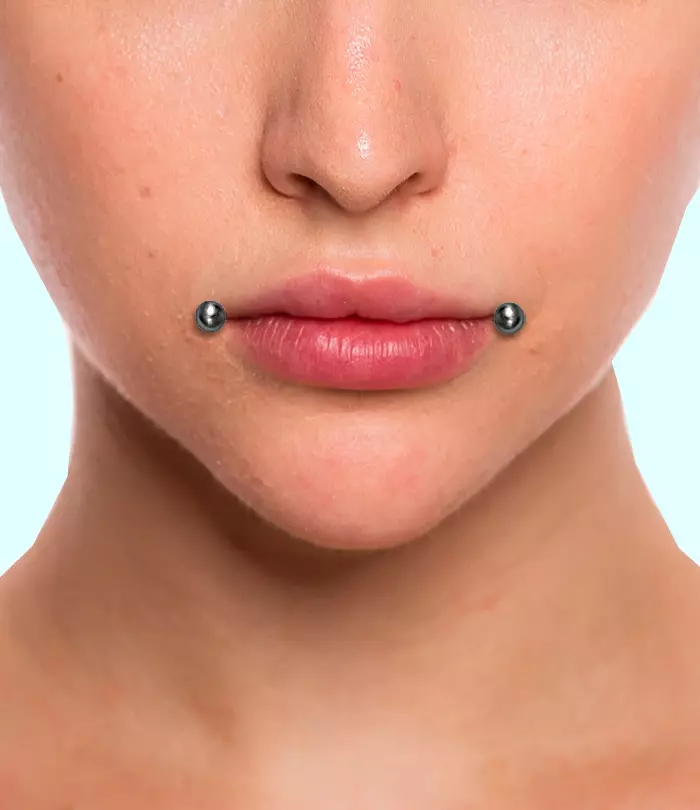
Image: Shutterstock
If you are looking for an edgy yet refined facial piercing, you must consider the ever-so-popular Dahlia piercings. These piercings, with their delicate placement at the corners of the mouth, create a unique look with an elegant elongated effect on your smile. When healed, these piercings can be adorned with a range of jewelry, like studs, rings, or delicate chains, to complement your personal style. But there is more to this daring look than meets the eye. Get the inside scoop on everything from the origin of its provocative name to the nitty-gritty details about its pain, cost, process, ideal jewelry, and care. Read on for an in-depth exploration into the world of Dahlia piercings and discover what it takes to safely rock this standout look!
 Piercing Guide: Dahlia (Joker) Piercings
Piercing Guide: Dahlia (Joker) Piercings- Placement: Both corners of the mouth
- Best Jewelry: Labret studs
- Cost: $40 to $80
- Pain Level: Low to medium
- Healing Time: 3 to 5 months
In This Article
What Are Dahlia Or Joker Piercings?
View this post on Instagram
The Dahlia piercing has many names, such as a double corner piercing, Black Dahlia piercing, Dahlia bites, or Joker piercing. It is essentially a type of mouth piercing made at the corners of the lips. This unique facial piercing gets its name from two dark influences: the notorious Black Dahlia murder case from the 1940s and the scarred smile of the Joker, a famous Batman villain. Elizabeth Short, popularly known as the Black Dahlia, was brutally killed and mutilated with slashes from the edges of her mouth to her ears. And the Joker’s infamous Glasgow grin involves similar scars, creating an extended, carved smile. While morbid in origin, the name Dahlia piercing combines these macabre references to deliver an edgy, bold lip piercing style involving the double perforation at each mouth corner. For those interested in mouth piercings, the Dahlia piercing offers a striking and dramatic look that stands out in any body modification collection.
 Trivia
TriviaBeyond its captivating appearance, the safety of Dahlia piercings is paramount. Explore the potential risks in the section below.
Key Takeaways
- Dahlia piercings are a type of lip piercing done at the corners of the mouth for an edgy, elongated smile effect. The name comes from the Black Dahlia murder and the Joker’s scars.
- Dahlia piercings are relatively safe when done properly by a skilled piercer, but carry risks such as the possibility of infection.
- Precise placement and use of a hollow needle are vital parts of the Dahlia piercing process.
- Initial labret or captive bead ring jewelry should be made of high-quality implant grade metals.
Are Dahlia Piercings Safe?
Despite misconceptions, dahlia piercings are generally safe when done properly by a reputable piercer or a trained professional. However, as with any piercing, risks like infection are possible if aftercare guidelines are not followed properly. The mouth contains more bacteria that could lead to complications if you do not practice good hygiene standards. Other potential risks include keloid formation, which occurs when scar tissue builds up around the piercing site. Allergic reactions to certain jewelry materials, like nickel, can also cause irritation. Hence, it is essential to choose hypoallergenic metals, such as surgical steel or titanium. You can minimize potential dangers by selecting a professional piercer, discussing potential risks ahead of time, and diligently cleaning the piercings during healing, proper placement, jewelry, and aftercare practices.
A dahlia piercing requires specialized skills and experience that not all piercing parlors possess. Because of the extremely precise placement needed at the corners of the mouth, many salons do not perform this uncommon piercing at all. Locating experienced piercers who are familiar with the intricacies of Dahlia piercings is essential.
Satisfied with the safety assurances? Excellent! Next, explore the step-by-step process for achieving this standout look, so you really understand what you are in for.
The Process Of Getting Dahlia Piercings
- The procedure begins with the piercer sterilizing their studio, work area and instruments. They will place a new piece of parchment on the piercing seat.
- Once you are seated, the piercer will then clean the area meant to be pierced.
- Then they mark the exact placement on both the oral corners. If positioned too far from the mouth corners, the lengthening effect of a smile is lost. Placing the piercings through the actual lip tissue also defeats the purpose and raises health risks, spelling out the importance of choosing an experienced and skilled piercer.
- Using a sterile hollow needle, the piercer will puncture both sides of the mouth in the carefully mapped spots.
- Initial jewelry, such as a curved barbell, labret stud, or captive bead ring, is inserted into the fresh piercings.
- The piercer finally cleans up the area and provides aftercare instructions.
Congratulations on getting those piercings! But the fun is not over just yet. Explore the range of materials and styles available to adorn your Dahlia piercings.
Jewelry Types And Materials For Dahlia Piercings
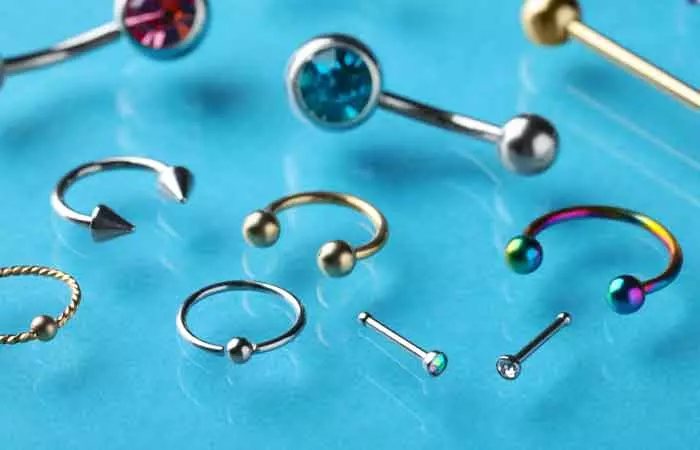
Dahlia piercings add a unique touch of personality and flair to your aesthetic, owing to your choice of jewelry. The right kind not only enhances your look but also ensures a smooth and comfortable healing journey. Here is what you need to keep in mind when selecting your nose piercing bling:
- Initial jewelry should be implant-grade surgical steel, titanium, or 14k gold for safety and long-lasting wear. This avoids irritation and promotes healing. Opting for cheap metals can cause allergies or infections (1).
- Typically, 14-16 gauge and 13mm length are standard, but your piercer may use a longer bar initially to accommodate swelling.
- Labret studs are the go-tos, offering comfort and versatility. The flat back of the labret stud provides stability inside the mouth.
- Once healed after 4-5 weeks, you can swap for daintier jewelry like gemmed ends (2).
- Captive bead rings or curved barbells can be used later, once the skin heals, if you fancy a different look.
Understanding the cost components is crucial. Let’s delve into pricing factors to help you plan and budget effectively.
The Cost Of Dahlia Piercings
On average, expect to pay $40-$80 depending on the location and the piercer’s experience. For this aesthetic piercing procedure, the jewelry itself can range from $30 for simple studs to over $100 for more elaborate gold or gem pieces.
- A skilled, reputable piercer will likely charge more per piercing given the precision required and their professional expertise. Additionally, they may also charge more if you want to be included into their busy schedule soon.
- Studios in major cities or upscale neighborhoods may have higher pricing too.
- Skilled piercers and trusted piercing studios follow the highest safety standards and hygiene practices. They also invest in staying on top of their game. These factors can influence their price range.
- The number of piercings also impacts price—expect to pay double for the symmetry of bilateral Dahlias.
- If you wish to opt for numbing cream prior to the piercing, that will add $10-20 to the total cost..
- Aftercare products, such as antiseptic sprays and rinses, could run you $15 or more as well if the piercer or studio offers custom products.
With the aspect of cost covered, now onto comfort! Take a look at the pain level associated with Dahlia piercings.
Pain Level Of Dahlia Piercings
The level of pain experienced during a dahlia piercing is generally described as being around a 3 to 4 on a scale of 1 to 10. This is due to the two punctures involved in the piercing and the presence of more nerve endings around the lips (3). While individual pain tolerance is subjective and can vary, a dahlia piercing is often considered to be less painful than other types of lip piercing. Some lingering soreness is normal during the healing process.
Azia Janelle, a YouTube vlogger, shares her experience with Dahlia Piercing. Talking about the pain level, she says, “If you can handle getting pinched or like getting injections or
anything like that, I recommend stuff like this. Or if you are able to just bear with the pain, this awesome looking face (i).”
Some people claim to experience pain or tenderness for a few days during the healing process. Read ahead to know how long it may take for your stunning piercing to fully heal.
How Long Do Dahlia Piercings Take To Heal?
Dahlia piercings demand more patience than your average adornment. Due to their double nature and sensitive location near the mouth, the approximate Dahlia piercing healing time is 12-20 weeks (or even up to a year!). Expect initial swelling, redness, and irritation, but don’t worry; these symptoms usually subside within 4-5 weeks, allowing you to swap the initial studs for your desired jewelry. Proper aftercare is crucial for smooth healing, so steer clear of excessive touching and certain foods or drinks that may irritate or get stuck in the piercing (2).
Remember, two piercings mean double the responsibility! Consult your piercer about lifestyle compatibility, risks, and upkeep before taking the plunge into this unique double face-piercing adventure.
 Did You Know?
Did You Know?Scroll down to know about the proper aftercare and a glimpse into the commitment required for your piercing.
Aftercare for Dahlia Piercings
Dahlia piercings require specific aftercare routines to ensure proper healing and minimize risks. Take a look at some of the essential aftercare tips here:
- Gently clean the piercings twice daily with a sterile saline solution and gauze (2).
- Do not use any harsh chemicals! Avoid products with alcohol and hydrogen peroxide (4).
- Do not touch the piercings with unwashed hands (2)
- Pat dry carefully with a lint-free cloth (4).
- Avoid sleeping on the pierced sides for 6-8 weeks (4).
- Skip swimming, hot tubs, saunas, and steam rooms for 6 weeks (4).
- Rinse your mouth with warm salt water after meals.
- Brush teeth twice daily with a soft-bristled brush.
- Avoid touching jewelry, except when cleaning.
- Skip creams, lotions, and other products near the piercing.
- No smoking, alcohol, or spicy foods (4).
- Avoid activities that could snag or bump it (e.g., contact sports).
- Be careful of what you eat or chew. Consider having soft foods in the initial weeks after the piercing.
Now that you understand the general aftercare principles for Dahlia piercings, zoom in on another crucial aspect: cleaning.
How To Clean Dahlia Piercings
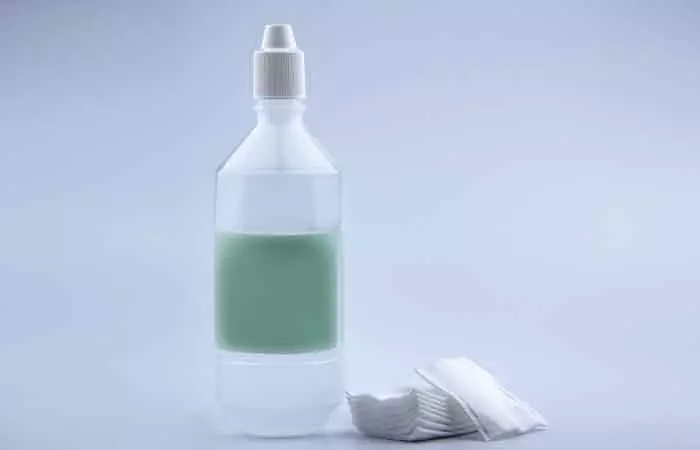
Dahlia piercings, with their unique location near the mouth, require specific attention to ensure proper healing and avoid complications. Here are some tips for cleaning and caring for these oral piercings:
- Prepare your saline solution by mixing 1/2 teaspoon of non-iodized salt into one cup of warm distilled or bottled water (4).
- Store it in a clean, sealed container in the refrigerator for up to a week.
- Soak the piercing using a gauze pad or non-woven swab with the saline solution.
- Gently apply the soaked cotton to the piercing site for 5-10 minutes. Do this twice a day.
- Rinse your mouth with an oral mouthwash. Avoid using an alcohol-containing mouthwash that may dry out the piercing channel.
- Pat dry the area gently with a clean paper towel.
- After eating, use a soft-bristled toothbrush with warm water to gently cleanse the area around the piercing. Make sure to rinse away all toothpaste residue.
Now that cleaning your Dahlia piercings has become your new zen ritual, take a step back and consider the broader picture by weighing the pros and cons.
Pros And Cons Of Dahlia Piercings
View this post on Instagram
Dahlia piercings offer a striking aesthetic that lengthens the facial profile and blends seamlessly with your natural features. Just like any type of body modification, it is crucial to weigh the potential advantages and disadvantages. Here are some key pros and cons to consider about Dahlia piercings:
Pros
- When compared to other piercings, dahlia piercing jewelry tends to be more affordable, allowing you to experiment with various styles without breaking the bank.
- There are abundant options and a wide range of jewelry to match your unique style and personality.
- They are highly durable as they are made from materials like titanium or stainless steel that are resistant to damage and corrosion, ensuring long-lasting shine.
- While initial scarring may occur, it is usually minimal and fades over time with proper care.
Cons
- Nerve damage is possible if not done by a skilled piercer with thorough anatomical knowledge (5).
- The piercing process may be more expensive than other basic piercings. This may be due to the piercer’s expertise and the rarity of the piercing.
- Heavy jewelry is a no-go to avoid tissue damage (4).
- You will have to limit spicy food, alcohol, smoking, and caffeine during the healing process (4).
You will be well-equipped to make an informed and confident choice by carefully considering the pros and cons outlined above. Ultimately, the decision rests firmly in your hands. If you are in doubt, consulting a reputable piercer will do the trick.
Dahlia piercings are certainly not for the faint of heart. They offer a dramatic facial statement for those seeking a subtly rebellious look. Beyond the grim connection between the infamous Black Dahlia murder case and the Joker’s unsettling grin lies a unique aesthetic piercing unlike any other. However, if the unique risks and demands of Dahlia piercings seem daunting, a consultation with an extremely experienced piercer is a must. If you decide to take the plunge, be prepared to invest ample time, care, and patience during the healing journey. Each step paves the way for a smooth healing process and a dazzling outcome.
Frequently Asked Questions
At what age can you get a Dahlia piercing?
The age for a Dahlia piercing may vary depending on location and the requirements of the piercing studio. In most places, individuals under the age of 18 will likely need written consent from a parent or legal guardian.
Can you participate in activities like kissing or playing musical instruments with Dahlia piercings?
No, it is advised to avoid kissing and playing wind instruments during the healing process to prevent irritation and reduce the risk of infection.
Do Dahlia piercings swell?
Yes, you may experience swelling, especially during the initial healing period. Swelling is a common side effect of the piercing process and is part of the body’s natural response to the trauma of being pierced.
Will a Dahlia piercing leave scars if I remove it?
Dahlia piercings may leave small scars after removal, but they usually diminish over time. Proper aftercare and removal by a professional piercer can help minimize the risk of prominent scarring. You can also use scar-reducing creams once the piercing is healed completely.
The daring Dahlia piercing creates an eye-catching elongated smile, but is it right for you? The video below reveals everything about this edgy double lip piercing with no sugarcoating! If you’re tempted by them or just curious about the latest lip piercing trends, watch this video now.
Personal Experience: Source
StyleCraze's articles are interwoven with authentic personal narratives that provide depth and resonance to our content. Below are the sources of the personal accounts referenced in this article.
(i). Dahlia Piercings: My Experiencehttps://www.youtube.com/watch?v=5U-6wH8dDq0
References
Articles on StyleCraze are backed by verified information from peer-reviewed and academic research papers, reputed organizations, research institutions, and medical associations to ensure accuracy and relevance. Read our editorial policy to learn more.
- Granulomatous reaction to titanium alloy: An unusual reaction to ear piercing
https://www.sciencedirect.com/science/article/abs/pii/S0190962206005433 - CARING FOR NEW PIERCINGS
https://www.aad.org/public/everyday-care/skin-care-basics/tattoos/caring-for-pierced-ears - Oral Piercing: A Pretty Risk—A Scoping Review of Local and Systemic Complications of This Current Widespread Fashion
https://www.ncbi.nlm.nih.gov/pmc/articles/PMC10177791/ - SUGGESTED AFTERCARE FOR BODY PIERCINGS
https://safepiercing.org/aftercare/ - Face Piercing (Body Art): Choosing Pleasure vs. Possible Pain and Posture Instability
https://www.ncbi.nlm.nih.gov/pmc/articles/PMC3177080/
Read full bio of Rodrigo Casco
Read full bio of Gracia Odile
Read full bio of Anjali Sayee
Read full bio of Shreya Mukherjee





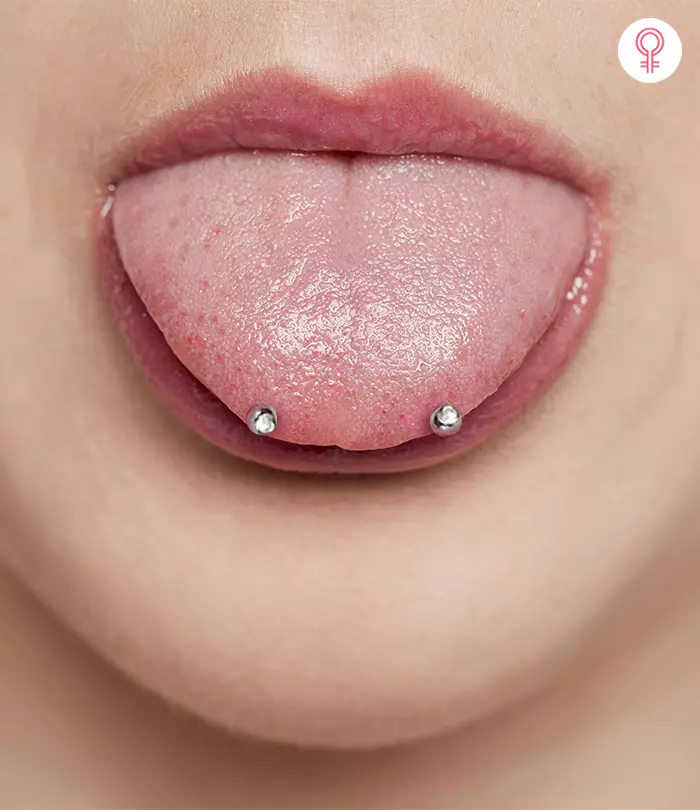
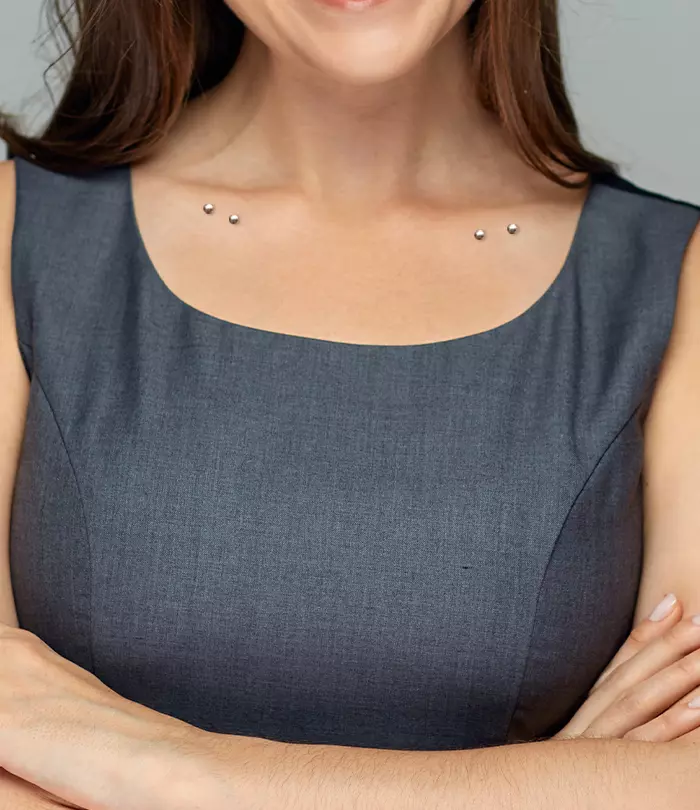

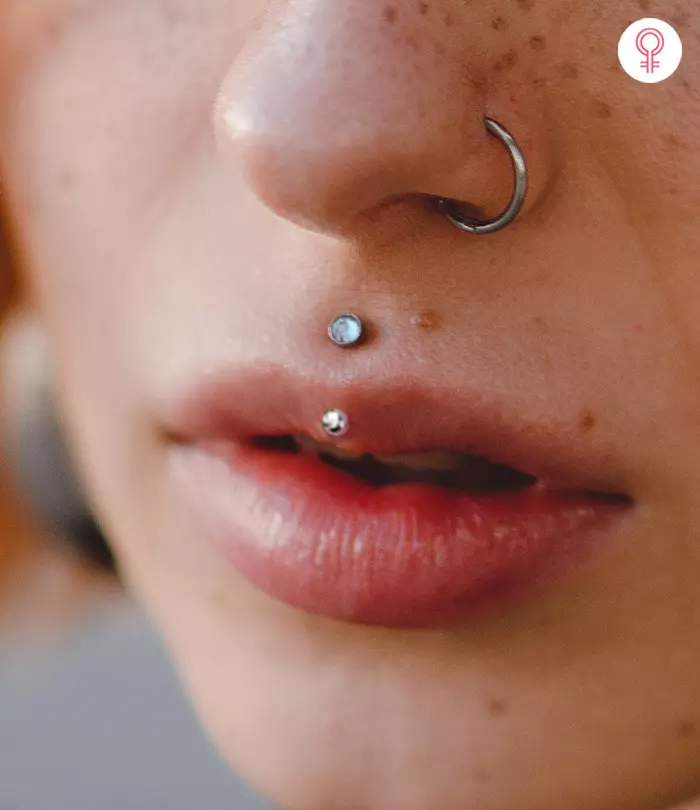


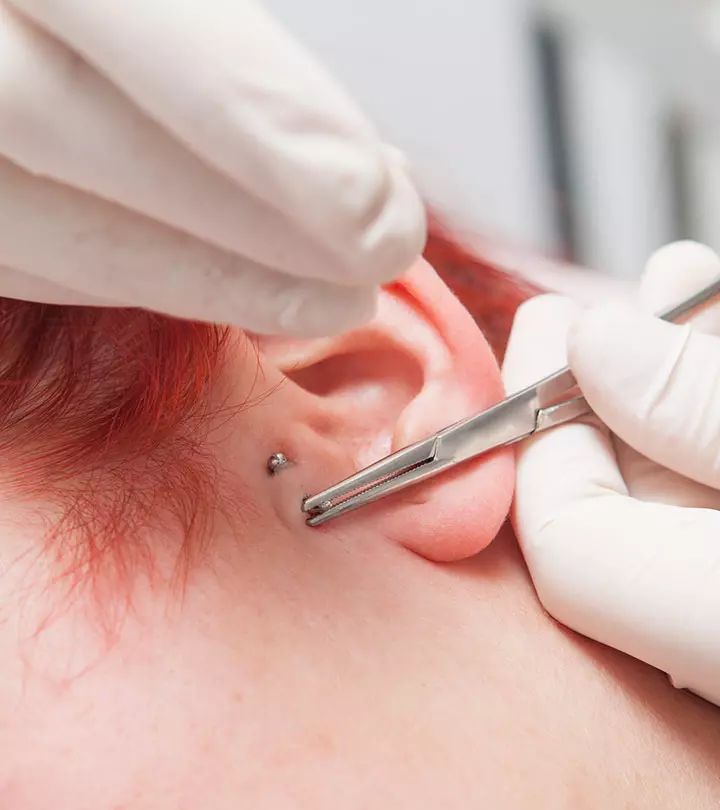

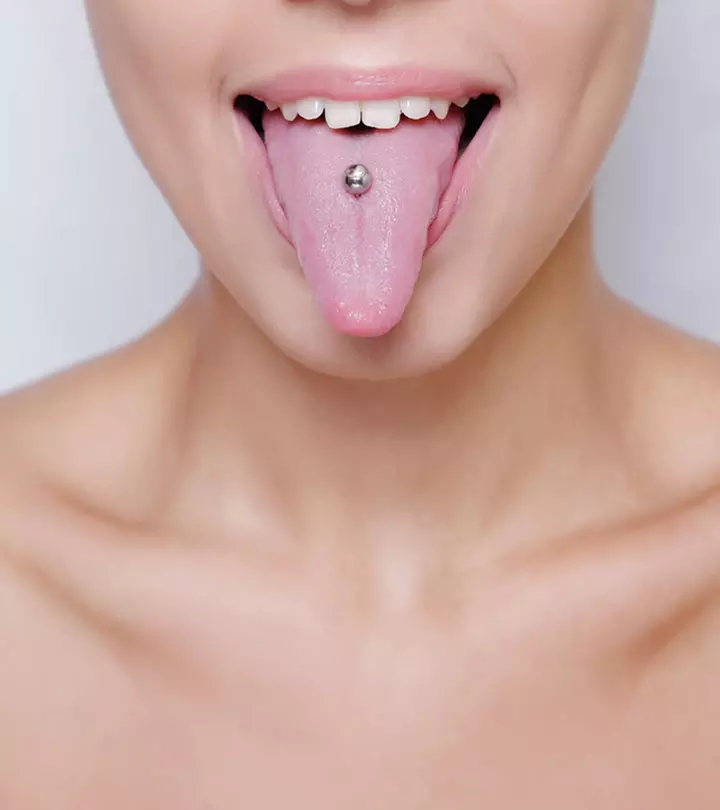
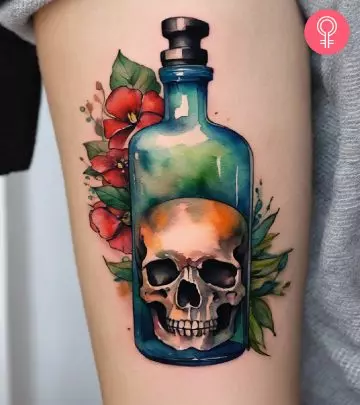
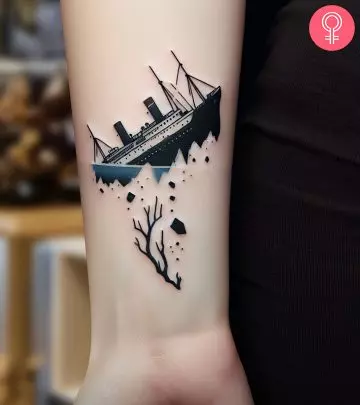
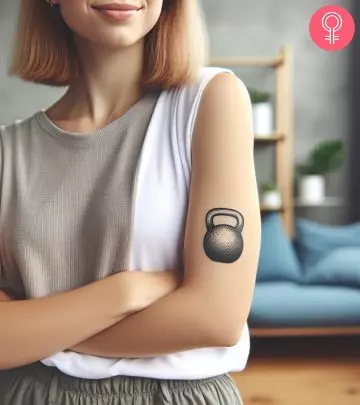
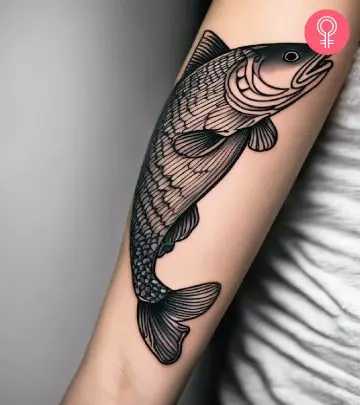
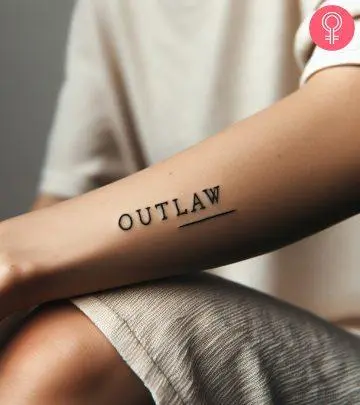
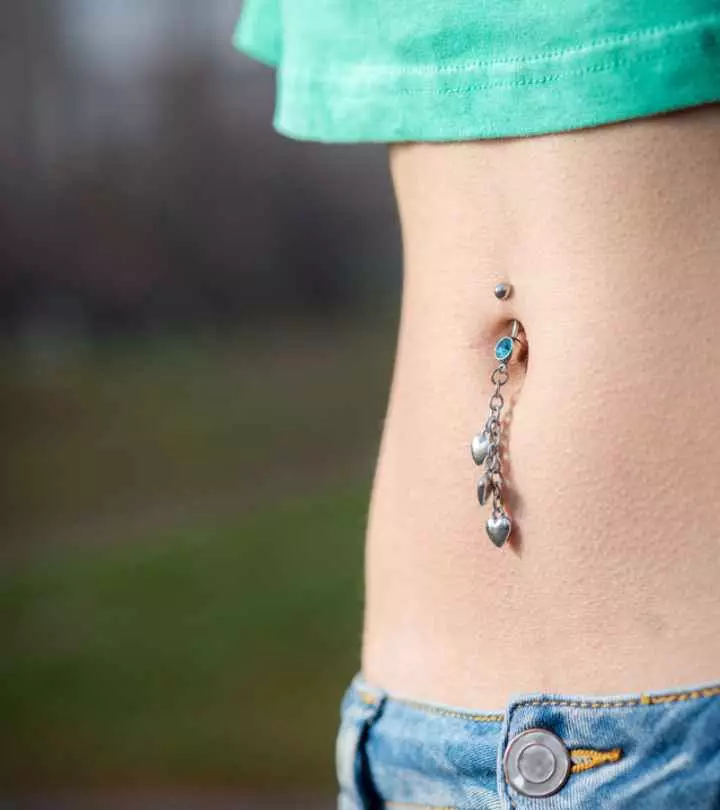

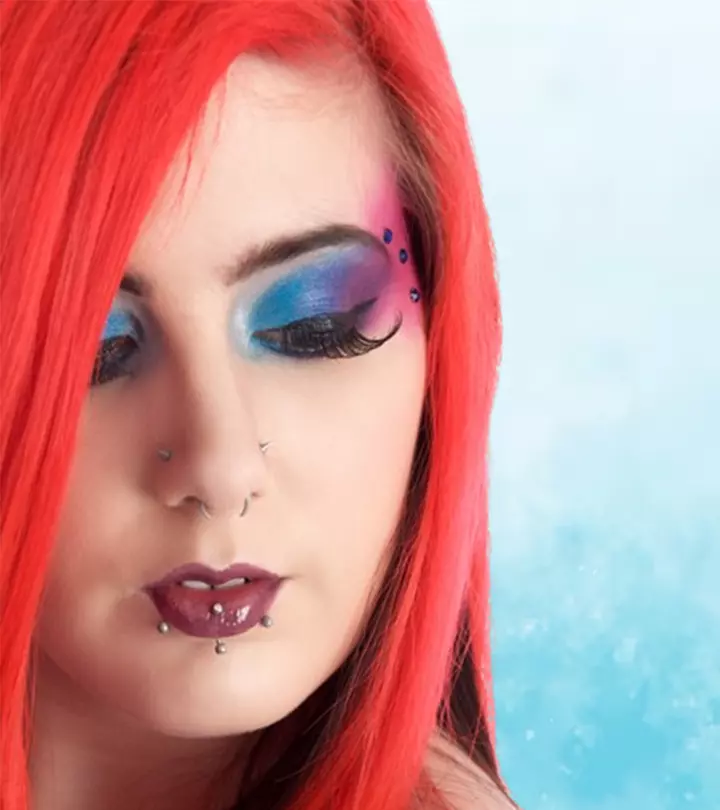
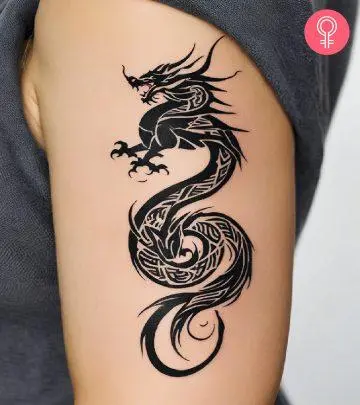
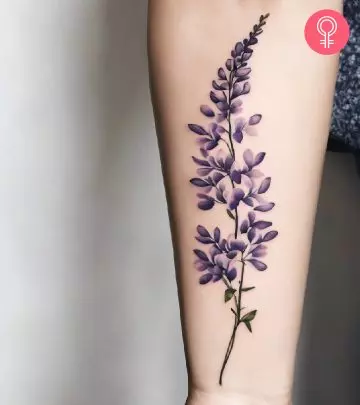
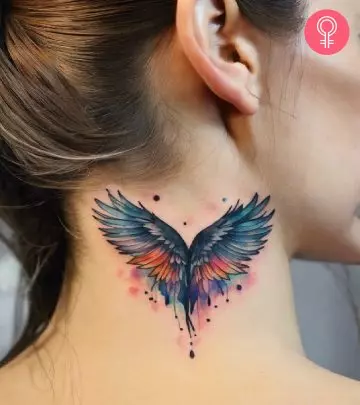
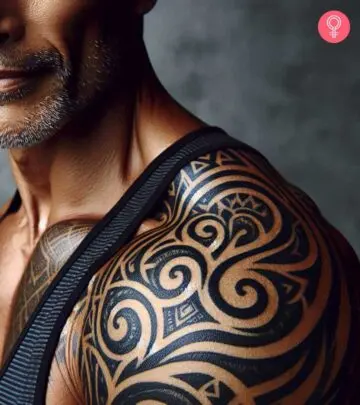
Community Experiences
Join the conversation and become a part of our empowering community! Share your stories, experiences, and insights to connect with other beauty, lifestyle, and health enthusiasts.